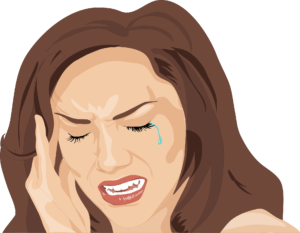Migraine can affect 1 in 5 Australians during their lifetime, and is more common in women than men. While some may only get migraines every now and then, others can suffer from them quite frequently- this can have a major impact on a person’s quality of life.
Migraine headaches are often located on one side of the head, and tend to be severe and throbbing. They may be accompanied by nausea, vomiting and sensitivity to light or noise.
Before the onset of a migraine headache, some people may experience an ‘aura’. ‘Auras’ are known to be a warning sign of sorts, occurring 10-30 minutes before the headache starts. These ‘auras’ can be visual- causing blind spots, blurred or distorted vision or moving zigzagged coloured lines. They can also lead to numbness or tingling in the face or limbs. Other people may experience a strong smell, or their speech may be affected.
It’s not always clear why some people get migraines, but sometimes there might be a particular trigger for example:
- Bright or flickering lights
- Strong smells eg. perfume, chemicals, smoke
- Travel related stress or high altitudes
- Changes in weather or barometric pressure
- Noise
- Computer use (incorrect or overuse)
Dietary Factors
- Missed, delayed or inadequate meals
- Caffeine
- Wine, beer and spirits
- Dehydration
Physical and Emotional Factors
- Lack of sleep or oversleeping
- Illness such as a viral infection
- Neck and back pain, painful and stiff muscles
- Sudden and excessive exercise
- Emotional triggers such as arguments or stress
If you’ve never had a migraine before, and you develop any of the symptoms above, it’s very important to get urgent medical attention to make sure nothing more serious is going on. In particular, if you develop sudden problems with your speech, or sudden weakness, numbness or pins and needles in your face or limbs, you should call an ambulance, as it could be a stroke.
There are lots of helpful treatments for migraine, so it makes sense to see your doctor if you’re getting regular headaches.

If you suffer migraines, talk to a doctor . You can find a local GP by using doctors.com.au.
This article was written and provided by Dr Aifric Boylan:
Dr Aifric Boylan is a practising GP based in Melbourne, specialising in Womens Health and is Director of Qoctor, the Quick Online Doctor which provides a range of online health services.

